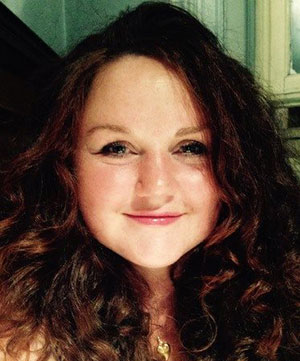Returning to work after cancer treatment

I hesitated to write this piece having never really considered myself as having a disability, but after a bit of reflection I've decided to share my experience in the hope it might help somehow.
In November 2017, I was diagnosed with inflammatory breast cancer. I was still on maternity
leave and had spent the preceding week planning my return to work and I had hoped to apply for ICM training. I knew what I had, I’d worked through differentials and it couldn't be anything else. As I sat in the waiting room I knew I was the statistic for that day.
Months of treatment lay ahead complications and setbacks - all of which I welcomed with open arms.
Life slowed but surprisingly there was still happiness in our home. We reflected on our ‘old life’ and how busy we always were and how the many small things now brought us joy. Cancer changes you physically but I hadn’t quite believed it when my specialist nurse told me that was the easy bit. I would soon find out as it was time to get back out into the world, quite literally.
I was still receiving treatment when I returned to work in February 2019. It was a bit of a now or never - I had been off for almost 2 years and honestly had thought about not going back. On my return I felt psychologically closer to patients than my colleagues who seemed to operate effortlessly and at a pace beyond me. I felt like an imposter, I worried about my patients; I didn’t want to do them disservice or miss anything. I worried I’d be seen as incompetent, or distractible and quietly I worried that the cancer would come back.
I needn't have worried about most of it. Our fantastic TPD for trainees with differing needs was able to ensure I had everything in place to be fully supported. I worked flexibly in a supernumerary post and was able slowly increase my hours. I worked with a handful of consultants so I could avoid the anticipated ‘where have you been? new hair?’ conversations. What I hadn’t anticipated was how exhausted I would become. Even simple tasks consumed my energy. I quickly realised I would have to take ‘pacing’ seriously. Occupational health helped by setting restrictions but I found myself explaining these to different colleagues meaning I lacked the privacy I might have had working in a different environment.
Work is going well now despite the interruption of more surgery and covid. I still have my limits; I have lymphedema, and weakness on my right, and a new diagnosis of rheumatoid which gives me pain and stiffness. Subsequently technical tasks are difficult; I get frustrated that I must appear clumsy or messy when I drop things or can’t get the cannula cap on quickly. I sleep poorly, especially on steroids, and I tire easily. I’ve realised if I want to keep functioning I need to rest. At the times I have stepped out of clinical work due to pain and the side effects of treatments I have preferred working in the office rather than staying home. The flexibility to do this has undoubtedly prevented me needing to take sick leave.
Out of my weakness I have found some strengths, I have great clarity about what is
Important to me, I know my limits, have a good work life balance and I am happy and grateful to be able to work. I can see that my contribution is about more than just ‘presence’ and I appreciate the difference we all make more than I ever could have previously. It took me a while to realise but, getting back to work and health is a process and not an event.
Lianne Martin
ST6 Anaesthesia